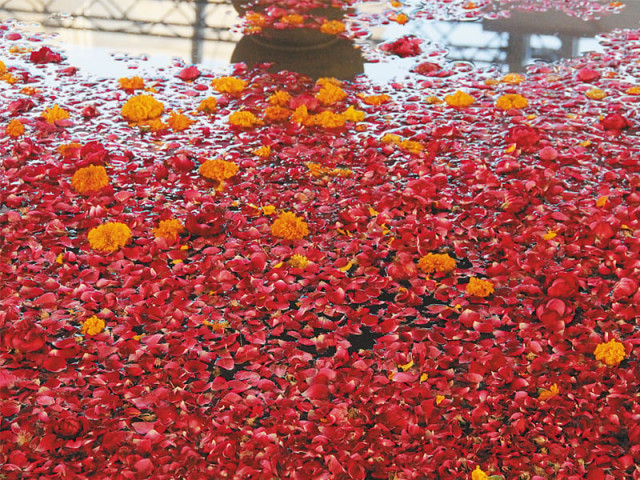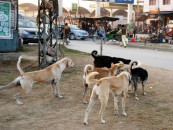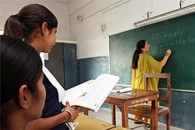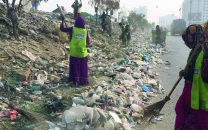Heritage and the city: ‘End no-go areas for the rich and poor’
Public spaces needed in a public Karachi, urges Shahid Abdulla.

At the centre of the Frere Hall setting for the South Asian Cities Conference was a fountain strewn with rose petals, an apt choice given how Shahid Abdulla remarked during one of the last sessions how you can tell a city by its khushboo.
Do this. Buy up Hotel Metropole. Raze it to the ground. Build a huge underground car park and a piazza on top. Let it be a town square, a place where everyone could come and enjoy themselves.
This is the vision of architect Shahid Abdulla, who was sharing recommendations he had made for such a project, at the South Asian Cities Conference on Sunday.
“The city government can buy it, everything has a price,” he said referring to Hotel Metropole’s prime real estate. “This is the zero point of Karachi.”

Architect Shahid Abdulla
Abdulla and the other panellists were talking about public spaces. “What is happening now in the city is that there are no-go areas for the poor people and then there are no-go areas for the rich people,” said Abdulla. “They don’t want to go there and the poor can’t go there. We have to start making public spaces.”
Explaining what culture and the city means to him, Abdulla gave examples of truck stops and the walled city of Lahore. For him culture is more than just tradition. It is beauty, diversity and people.
“Most of you will say there is nothing beautiful out here and you would be wrong. The people of Karachi are beautiful and diverse - that is culture. Yes, politics is involved but keeping that aside, there is so much here,” he said. “This is the only city where you can see a beautiful diversity and if you look at that culture we are able to talk to each other, love each other.”
He claimed that every government that had ever come to power had promised to change the city. “They wanted to make it into the new Singapore or a small London, why not make into Karachi?” he said. “I think there is so much in Karachi that we should worry. We should say that we are going to make it into a livable Karachi, our Karachi. “

While talking about Karachi in the 1950s, Abdulla said that there used to be an annual exhibition at what is now Old Numaish. “That area got a little congested and it went a little further away to Karsaz and one looked forward to that; it was almost at an international scale,” he said. “There was no class system. Everyone enjoyed [themselves].
While talking about clients and malls, he said he always asks who they are competing with. “I ask them what is the most successful mall in Karachi, and they think Dolmen etc. I say no, it’s Empress Market,” he said. “You’ll find the aunties and uncles there, the common man, young people - everyone goes there. If we just go and clean up that space it will be beautiful but we have given up. We just need to begin.”
Aquil Belgaumi, another panelist and Abdulla’s contemporary, said that the city is vibrant and rich. “The city is for everyone. It is not just for the elite, it is for the masses. The culture of the city is like popular music. It is enjoyed by everyone.”
Also speaking at the session was Andrew Himes, the executive director of the Charter for Compassion. This was his first visit to the city and he felt that Karachi is truly a beautiful place. “There is a Karachi that lives not only in the imagination but in the reality of the present day,” he said. “There is a beautiful Karachi that has power and wisdom. The power of Karachi, is the power of compassion.”
During the question-answer session, the audience asked the panellists, including Ahmed Shah from the Karachi Arts Council, Arif Belgaumi, an architect, and moderator Naiza Khan, what makes a city, to which Abdulla replied and said: the khushboo.
Published in The Express Tribune, January 13th, 2014.



















COMMENTS
Comments are moderated and generally will be posted if they are on-topic and not abusive.
For more information, please see our Comments FAQ